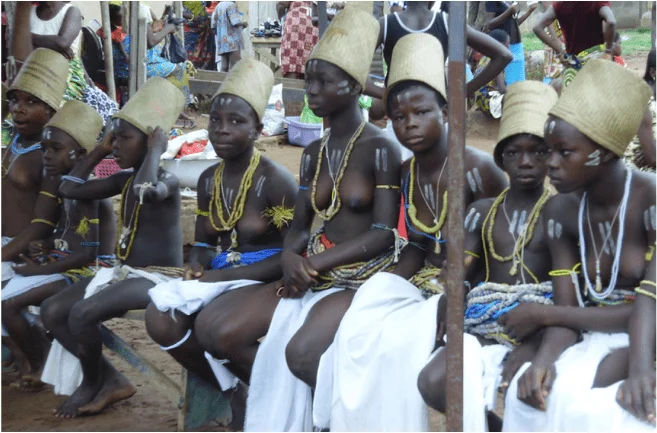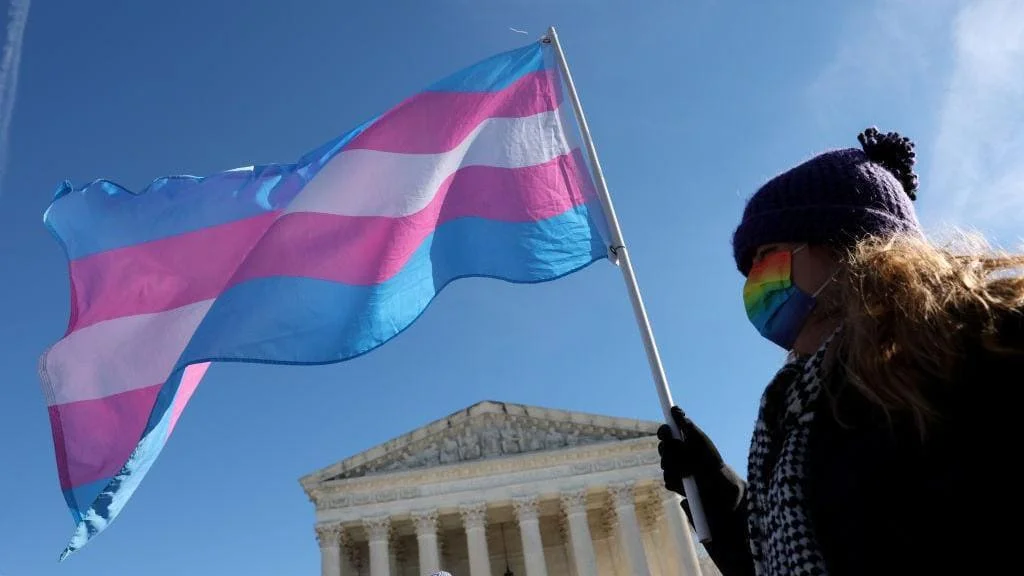In the hills of Eastern Ghana, the Krobo people have kept alive one of the most significant rites of passage in their culture: the Dipo ceremony. This age-old ritual marks the transition of young girls into womanhood and is regarded as an essential step in preparing them for marriage and adulthood. While the ceremony is revered for its symbolic value within the Krobo culture, it has also sparked controversy and debate, particularly around the public nature of some of its practices and the evolving role of women in Ghanaian society. This article explores the fascinating, complex, and sometimes shocking elements of the Dipo ritual, highlighting its cultural importance and the tensions it faces in the modern world.
The Sacred Dipo: An Introduction to Womanhood
The Dipo ritual is performed on adolescent girls, typically between the ages of 10 and 15, signaling their passage from childhood into womanhood. The ceremony, steeped in symbolism, takes place annually during the Krobo festival season, drawing families from across the region to celebrate this significant event. During the ritual, girls undergo several stages of purification, education, and initiation, all of which are overseen by the priestesses of the Krobo traditional religion.
Participation in the Dipo ceremony is viewed as a requirement for young girls to be considered eligible for marriage within the Krobo society. It is believed that without undergoing the ritual, a woman is not fully recognized as an adult and may face social stigma. The ceremony’s roots lie deep in the cultural history of the Krobo people, where it is regarded as a spiritual and physical purification process designed to prepare young women for the responsibilities of adulthood.
The Public Exposure: A Controversial Practice
One of the most controversial aspects of the Dipo ceremony is the period of semi-nudity that the young girls endure during the initiation process. As part of the ritual, girls are dressed in minimal clothing, often just beads around their waists and necks, while their breasts are left exposed. Traditionally, the girls’ bodies are painted with white clay and adorned with symbolic beads, which are believed to ward off evil spirits and bring protection.
While the semi-nudity is seen as a symbolic gesture of purity and transition by the Krobo, it has raised eyebrows among modern observers, including human rights advocates, who view it as a violation of the girls’ privacy and dignity. Critics argue that the public display of the young women, sometimes in front of large crowds, can be demeaning and inappropriate, especially in a world where concepts of gender and personal rights are rapidly evolving.
However, for the Krobo, the exposure is not seen through a sexualized lens but rather as a return to a state of purity and innocence. The practice is steeped in tradition, and efforts to modernize or alter the ceremony are often met with resistance from traditionalists who fear that tampering with the Dipo could lead to the erosion of their cultural identity.
The Rite of Passage: Lessons in Womanhood
At the heart of the Dipo ceremony is an educational component designed to teach young girls about their roles and responsibilities as women within the Krobo society. During the ritual, the girls are isolated in special huts, where they are taught about sexual maturity, childbirth, and household management by elder women in the community. They also receive instruction on maintaining personal hygiene, good manners, and how to uphold the Krobo moral code.
The teachings also extend to the importance of loyalty, humility, and respect, which are values deeply ingrained in Krobo society. Through these lessons, the girls are prepared for their future roles as wives and mothers. In the past, the Dipo also included lessons on farming and other skills essential to sustaining the household.
The girls’ obedience and humility are tested throughout the ceremony. For example, part of the initiation involves a symbolic act where they carry heavy stones or water pots, signifying their readiness to bear the weight of responsibility as women. This test of endurance is an important element of the rite, designed to demonstrate the girls’ strength and maturity.
Symbolic Purification: A Cleansing of Body and Soul
Purification is a central theme of the Dipo ceremony, both physically and spiritually. Before the initiation, the girls undergo a cleansing ritual in a sacred river, which is believed to wash away any impurities or evil spirits. This ritual, performed by a priestess, is a significant moment in the initiation process, marking the girls’ readiness to transition into adulthood.
The girls are also adorned with special beads that have been blessed by the priestesses, believed to bring fertility, protection, and prosperity in their future lives. These beads are worn not just during the ceremony but are kept as valuable tokens for the rest of their lives, symbolizing their successful passage into womanhood.
The final stage of purification occurs when the girls are paraded through the village, following their time of isolation. This parade symbolizes their re-entry into society as full-grown women, ready to take on the responsibilities of marriage, family, and adulthood. The celebration often involves music, dance, and feasting, and it is a moment of great pride for the girls’ families.
The Changing Role of the Dipo in Modern Society
Like many traditional African rituals, the Dipo ceremony faces challenges from the forces of modernization and changing attitudes towards women’s rights. Education, urbanization, and the influence of Christianity have all led to shifts in how the Dipo is viewed by younger generations. Many Krobo families now question whether the ritual is still relevant in a world where women are pursuing careers and education, rather than being defined solely by marriage and motherhood.
Efforts have been made to modernize the ceremony, reducing its more controversial aspects, such as the public exposure of the girls. However, these attempts are often met with resistance from cultural purists who believe that altering the Dipo could lead to the disappearance of their unique cultural identity.
Conclusion: A Rite of Womanhood Under Scrutiny
The Dipo ceremony remains a powerful symbol of Krobo culture, embodying the values of purity, responsibility, and readiness for womanhood. While its more controversial aspects, such as the public exposure and the focus on preparing girls primarily for marriage, have drawn criticism, the ceremony continues to hold deep significance for the Krobo people. As Ghanaian society continues to evolve, the Dipo stands at the crossroads of tradition and modernity, with its future uncertain. However, it remains a testament to the enduring strength of cultural practices and the complexities of balancing heritage with progress.






















